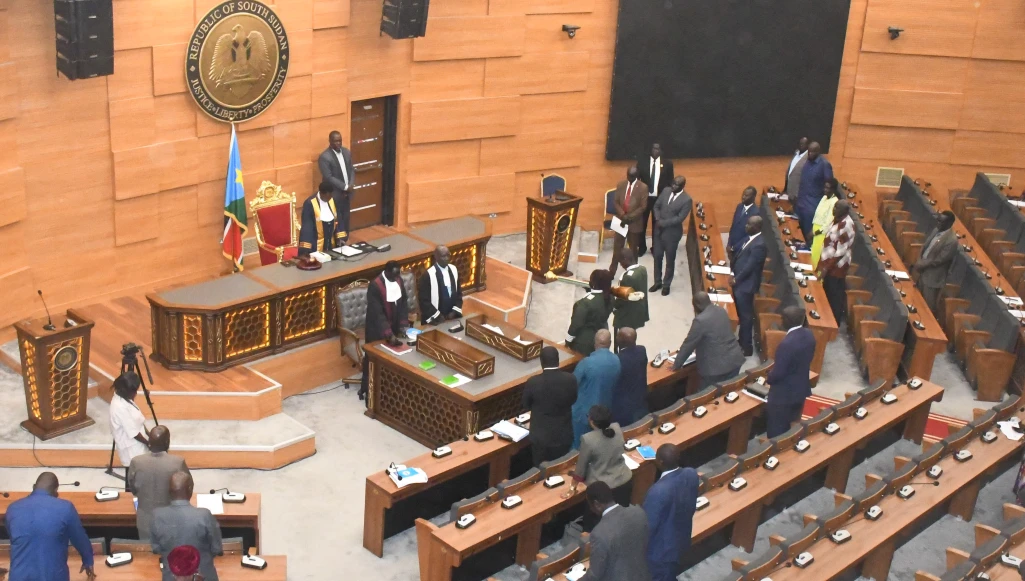
The Ministry
of Youth and Sports has introduced a new Sports Development Policy designed to
revolutionize the nation's sports sector by 2030.
Sports in
South Sudan have enormous potential, but there hasn't been a strategic plan to
use it.
Despite its
potential, the sports industry has remained underfunded and undeveloped since
the country gained independence in 2011.
The Council
of Ministers presented and approved the policy in August.
The Council
further approved an annual budget of $5 million for sports infrastructure.
Dr. Joseph
Geng Akech, who presented the policy to the Transitional National Legislative
Assembly (TNLA), said sports play a vital role in nation-building.
“I remind
this Honorable House, that sports shall bring our people together. Sports shall
build bridges among our communities. And indeed, sports will no doubt
strengthen social cohesion, peace, and unity,” Geng told the lawmakers on
Tuesday.
Geng outlined
some of the objectives that the policy aims to achieve.
“Foster a
culture of sports participation and excellence across and among the youth.
Build a sustainable and inclusive sports infrastructure across the country.
Enhance the capacity of sports associations to initiate and deliver sports
programs such as national leagues,” Geng stated.
The policy
seeks to promote talent identification and development at the grassroots levels
and increase participation as well as representation of South Sudanese athletes
at national and international sporting events.
It further
aims to strengthen legislative and sports governance, increase commercial value
in sports, and promote professional sports excellence.
The Ministry
of Justice and Constitutional Affairs is currently reviewing the Youth and
Sport Bodies Bill, 2024, according to Geng.
“Enactment of
a sport law, registration of all sport federations, ensuring fair elections of
their management, and capacity building of sport federations and associations,”
he mentioned.
The minister
stated that there are a total of 26 sport federations which are registered.
Furthermore,
the legal framework aims to establish a sports science institute.
“I'm happy to
announce also that the ministry has already drafted a Memorandum of
Understanding. And this is being reviewed for signing with the University of
Juba, which will host and run the institute for training on sports management,”
the minister revealed.
This trend
also aims to introduce sports television and radio as platforms for sports
advertising and sports finance conferences.
The ministry
has scheduled this conference to take place in Juba from November 26th to 28th,
2024.
Additionally,
the policy will establish and launch four competitive national leagues in the
strategic sport disciplines of football, basketball, volleyball, and athletics.
The policy's
final program encourages strategic investment in sports infrastructure.
“Here, the
policy aims to construct and renovate stadiums in 10 states and 300 city areas
by 2030. The purchase of sports equipment and uniforms,” the official stated.
In August,
President Salva Kiir Mayardit announced the allocation of land for the
construction of an "Olympics city" in a move to advance sports
development.
This
announcement came after President Kiir met with the national men's basketball
team, the Bright Stars, for their historic performance at the Paris Olympic
Games.
Hon. Jemma
Nunu Kumba referred the policy to the standing specialized committee on youth
and sports.
“I summit the
policy entitled the Sport Development Policy 2024-2030, today's standing
specialized committee on youth and sports. And the committee is tasked to
report back to the House within 14 days,” Nunu echoed.
Once the
policy is approved, it could transform South Sudan’s sports sector and inspire
future generations of athletes.